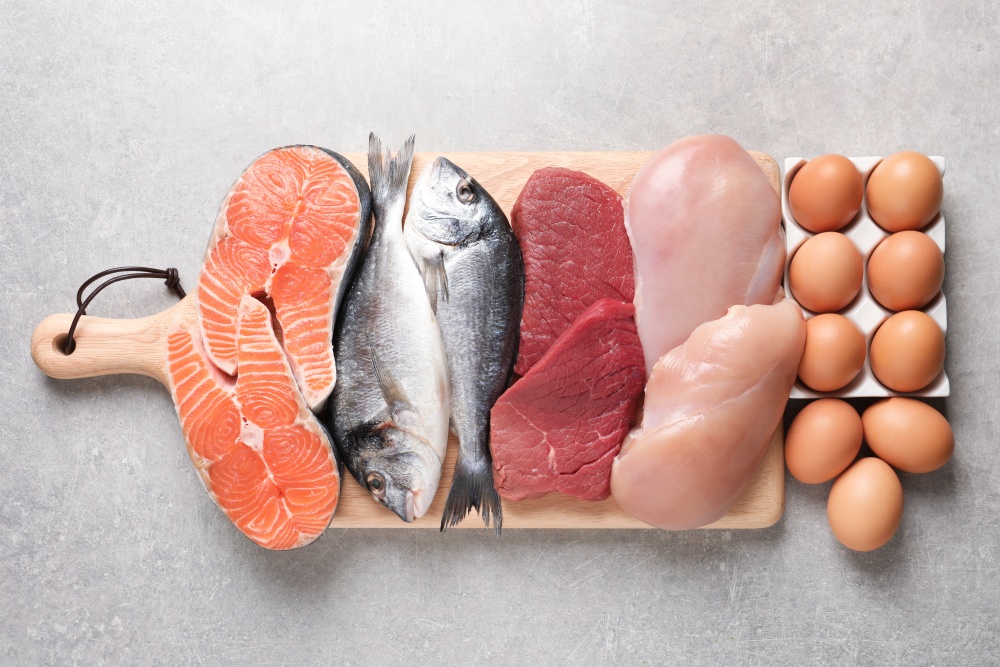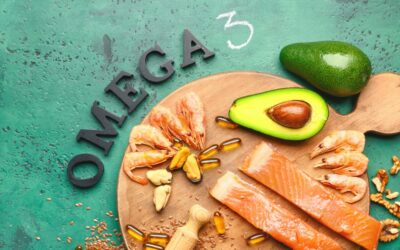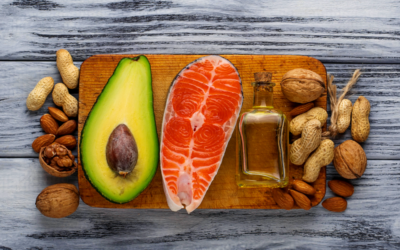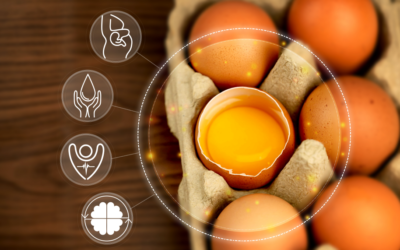Protein, often referred to as the “building blocks of life” is arguably the most critical macronutrient for brain health and repair and disease prevention as we age. One of three macronutrients found in food the body is primarily composed of protein (second only to water).
Proteins are essential for the growth, repair, and maintenance of tissues in the body (muscles and bone integrity), and they also play a role in many other bodily functions, such as enzyme production, hormone regulation, and immune system function.
All of that said, in this article, you will learn the critical role of protein in the body, the different types and implications on brain health, and how to ensure you are getting adequate protein in your diet to maintain brain health and prevent disability as you age.
Protein Metabolism
The body has a complex system for regulating the production and breakdown of proteins. This process is called protein metabolism.
Protein Catabolism
Protein catabolism is the process of breaking down the protein in food into amino acids that are then absorbed into the bloods stream.
Protein Anabolism
Protein anabolism is the processed of taking the amino acids and converting them into functional proteins.
Amino Acids
Amino acids are the building blocks of proteins. There are 20 different amino acids that the body needs to function properly, and they can be divided into two categories: essential and non-essential. Essential amino acids cannot be produced by the body and must be obtained through the diet, while non-essential amino acids can be produced by the body.
There are 9 amino acids that cannot be produced by the body and must be consumed through food. These include
- Valine
- Isoleucine
- Leucine
- Methionine
- Phenylalanine
- Tryptophan
- Threonine
- Histidine
- Lysine
What is the function of amino acids in the body?
- Tissue growth and repair
- Enzymes used for bodily functions (digestion, energy production, blood clotting, and muscle contraction)
- Act as hormones: chemical messengers that allow cells to communicate with one another
Protein Deficiency
It is important to note that if one essential amino acid is not available, protein synthesis can’t occur. With that said, protein deficiency (hypoproteinemia) has been linked to:
- Muscle loss
- Slowed growth
- Weakened immune system
- Weakened lungs and heart
What is a complete protein?
Foods that contain all of the essential amino acids are called complete proteins. These foods include:
- Beef
- Poultry
- Fish
- Eggs
- Dairy
- Soy
- Quinoa
- Buckwheat
Do amino acid supplements work?
There is little evidence that amino acid supplements are effective in protein synthesis in the body
Can you eat too much protein?
Consuming too much protein can also have negative effects on the body. Excess protein is converted into fat and stored in the body, which can lead to weight gain. It can also put a strain on the kidneys, which are responsible for filtering out waste products from the body.
Plant versus Animal Protein
Plant proteins and animal proteins differ in several ways, including their amino acid profiles, digestibility, and nutrient content. It is important to note that plant proteins do not contain all 9 essential amino acids.
Amino acid profiles
Animal proteins, such as those found in meat, eggs, and dairy products, are considered “complete” proteins because they contain all of the essential amino acids that the body needs. Plant proteins, on the other hand, are often considered “incomplete” because they may be lacking in one or more essential amino acids.
Digestibility
Animal proteins are generally more easily digested and absorbed by the body than plant proteins. This is because animal proteins are more similar in structure to human proteins, making them easier for the body to break down and use. Plant proteins, on the other hand, may contain compounds that interfere with digestion and absorption, such as phytates and fiber.
Nutrient content
Animal proteins are often higher in certain nutrients, such as vitamin B12, iron, and zinc, than plant proteins. However, plant proteins are often higher in other nutrients, such as fiber, antioxidants, and phytochemicals.
With all that said, plant-based diets require a deep understanding of how to combine plant proteins to ensure the body is getting all 9 essential amino acids to make it a complete protein. For example, beans are NOT a complete protein and must be combined with rice.
Articles you may be interested in:
Health Benefits of Broccoli Sprouts
Broccoli Sprouts Broccoli sprouts may be small in size, but they pack a powerful punch when it comes to health benefits. These tiny sprouts are loaded with nutrients and antioxidants that can help protect against a range of health issues, from cancer to heart disease....
Review of Trekking Poles
Best Trekking Poles for Fitness Walking Trekking poles are an excellent way to take your leisure walk into a fitness walk. More than that, walking poles can give more stability on uneven terrain, add an arm workout, and enable some to walk at a faster pace. But not...
Is Reverse Osmosis Water Filtration Better For You?
Water is essential for life, but not all water is created equal. Tap water can contain harmful contaminants and chemicals that can have adverse effects on our health. This is where reverse osmosis water purification comes in. Reverse osmosis (RO) is a highly effective...
Turn your daily walk into a fitness walk
Ways to get a workout out of your daily walk Daily walks have grown in popularity over the last few years. And for good reason. They are a great way to get sunlight, clear your mind, and breathe in some fresh air. Incorporating walks into your day is also a great way...
Health Benefits of Omega 3 Fatty Acids
Health Benefits of Omega-3 Fatty Acids and Recommended Foods Omega-3 fatty acids are an integral part of cell membrane phospholipids. They provide structure, act as a barrier to protect cells from environmental aggression, and influence various bodily functions to...
Health Benefits of Daily Sunlight
Health Benefits of Daily Sunlight There are two sides to every coin—and two stories to tell about sunlight. Skincare enthusiasts and specialists, it seems, have taken a definitive stand against the sun, branding it as a villain that causes premature aging and leads to...
Can a sleep study improve health?
Sleep is an essential part of our daily routine. Quality sleep might also be a critical factor in maintaining good health. However, many people suffer from sleep disorders that can lead to serious health problems. A sleep study is a diagnostic test that can help...
Increase Physical Activity with Exercise Snack
Physical activity could be the single most important lifestyle habit. In fact, it may help cope with the symptoms of a chronic condition and improve overall health. The CDC recommends 150-300 min of moderate-intensity activity per week. But fitting exercise into a...
Benefits and Harms of Dietary Fat
Fat is one of three macronutrients found in food that is essential for cell survival in humans. However, it is often demonized as being “unhealthy”. But that couldn’t be further from the truth. Some fats have been linked to improved cognition and decreasing the risk...
Protein Improves Brain Health
Studies have shown that diets high in animal protein may help to prevent neurological conditions such as Alzheimer's disease and Parkinson's disease. Furthermore, there is a growing body of evidence that animal protein might be the key that unlocks the door to health...











